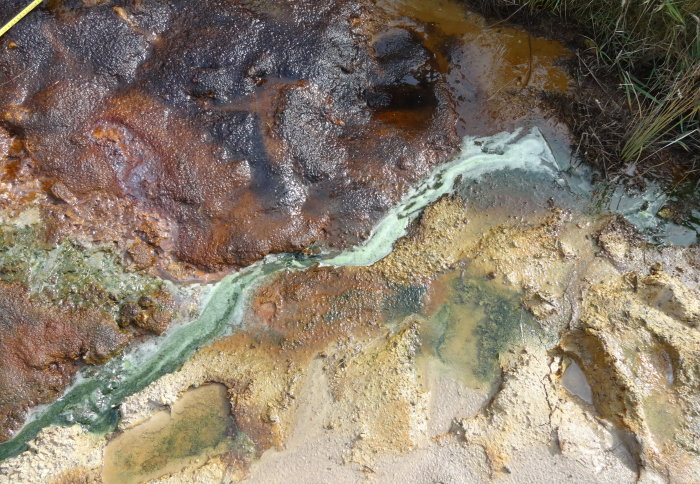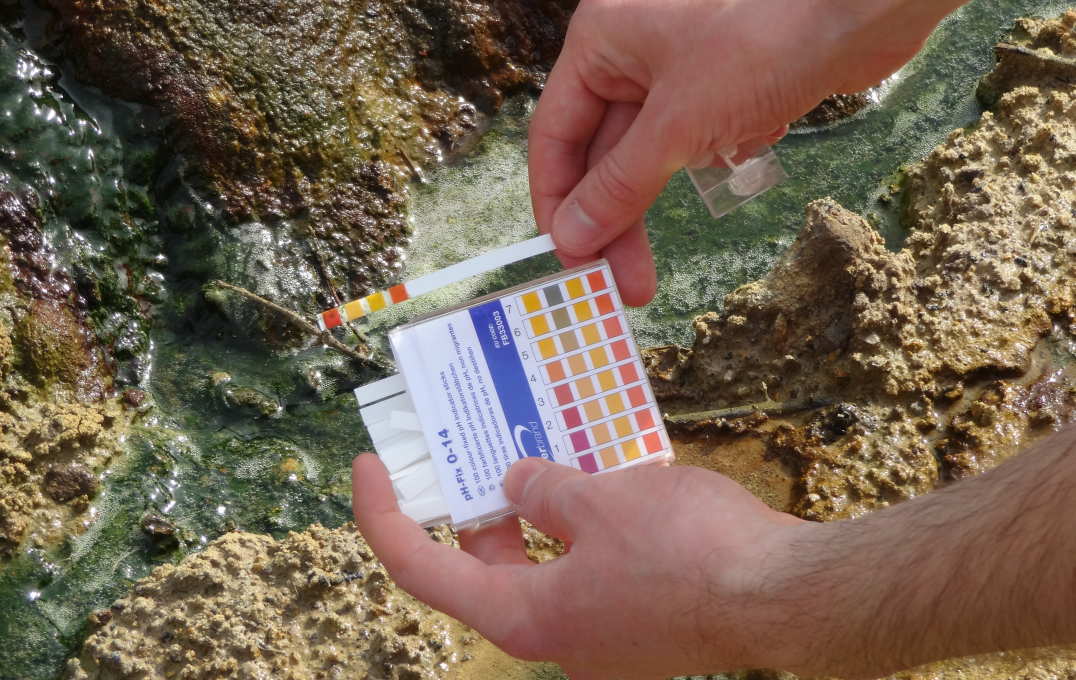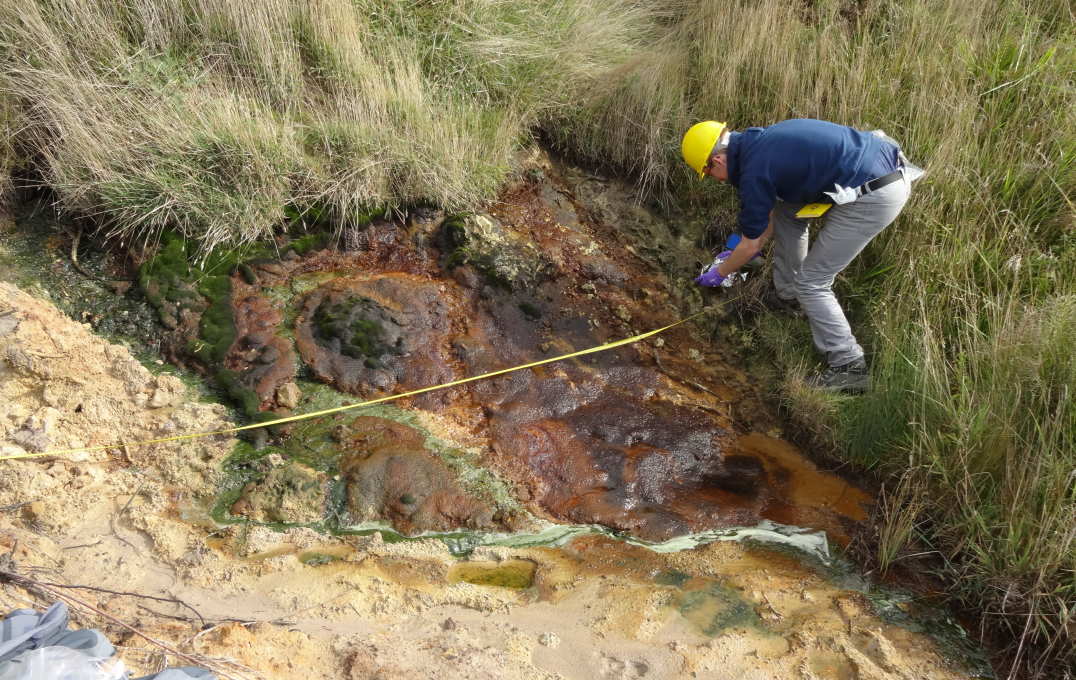Dorset, UK, used as model for finding life traces on Mars

This acid stream in St Oswald's Bay, Dorset, mimics Mars' environment from billions of years ago
By studying streams on the UK coast, experts have calculated how much organic matter we might find on Mars, and where to look.
Dorset is home to highly acidic sulphur streams that host bacteria that thrive in extreme conditions. One such environment, in St Oswald’s Bay, mimics the conditions on Mars billions of years ago.
Now, scientists from Imperial College London have found ancient traces of fatty acids - key building blocks of biological cells – in Dorset’s acidic streams.
Because the environment is so similar to that of Mars during its middle-ages, the findings hint that life might once have existed on the Red Planet.
St Oswald’s Bay is a present-day microcosm of middle-aged Mars. - Co-author Jonathan Tan
Using Dorset as Mars' template, study co-author Professor Mark Sephton from Imperial's Department of Earth Science & Engineering and colleagues examined organic matter preserved in St Oswald's Bay's rock deposits.
They found that the Bay's iron-rich mineral goethite hosts many microbes as well as traces of their fossilised organic remains.
Goethite transforms to haematite - a mineral that's very common on Mars and gives the planet its red colour. Professor Sephton said: "We thought that if these iron-rich minerals harbour traces of life on Earth, then they might hold clues to past microbial life on the Red Planet."
By applying their Dorset findings to Mars, the researchers concluded that there could be nearly 12,000 Olympic sized pools of organic matter on Mars that could represent traces of past life.
Without a trace
Previous missions to find life on Mars have used heat to look for microbial remains in rock. Scientists suspect the heat might have caused minerals to react with and destroy any organic matter, explaining why we haven’t yet found traces of life.
We have yet to find convincing traces of organic matter that would indicate previous life on the Red Planet - but now we know which rocks to focus on. Professor Mark Sephton Department of Earth Science and Engineering
However, heating goethite or haematite does not destroy organic matter, meaning scientists are more likely to find remnants of life if it's there.
Professor Sephton said: “Mars harboured water billions of years ago, meaning some form of life might have thrived there. If life existed before the water dried up, it would probably have left remains that are preserved to this day in Martian rock.
“We have yet to find convincing traces of organic matter that would indicate previous life on the Red Planet - but now we know which rocks to focus on.”
Biological calling cards
Co-author Jonathan Tan, also from the Department of Earth Science & Engineering, said: “St Oswald’s Bay is a present-day microcosm of middle-aged Mars. As the acid streams dry up, like during Mars’ ‘drying period’, they leave goethite minerals behind which preserve fatty acids that act as biological signatures.”
Professor Sephton added: “We should now let Dorset’s landscape guide our life detection efforts on the Red Planet."
The authors say that if we do find traces of life, it will probably be in the form bacteria that can thrive in extreme environments - like those found in Dorset's acid streams.
They hope to programme the next life-searching mission to Mars, Mars 2020, to search for these dried up streams and inspect the sediment for traces of fatty acids.
This work was funded by the UK Space Agency.
All images are credited to Imperial College London.
“The Fate of Lipid Biosignatures in a Mars-Analogue Sulfur Stream” by Jonathan Tan, James M. T. Lewis and Mark A. Sephton, published 15 May 2018 in Scientific Reports.
Article supporters
Article text (excluding photos or graphics) © Imperial College London.
Photos and graphics subject to third party copyright used with permission or © Imperial College London.
Reporter
Caroline Brogan
Communications Division

